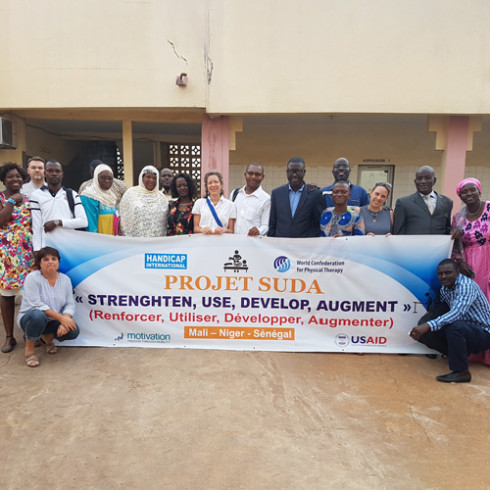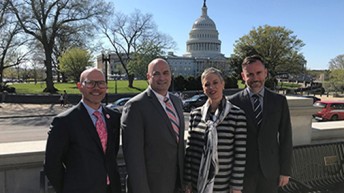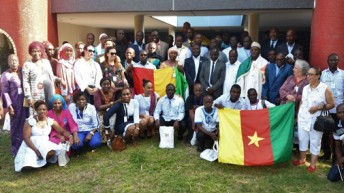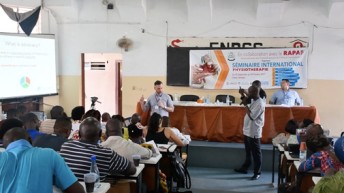About the SUDA project
Our first major project began in 2016 and covered three countries in Africa. Known as the SUDA project, its aims were to:
- Strengthen the physiotherapy associations
- Use the standards set by World Physiotherapy
- Develop a paper on physiotherapy assistants’ role
- Augment wheelchair training
The SUDA project involved working with people who had been practising physiotherapy for 20 years or more, but in a different way from contemporary physiotherapy practice. Head of programmes and development Sidy Dieye knew the region well. He’s worked extensively there and is from Senegal originally.
“I needed to get to know the local physiotherapists and to get to know their needs,” Sidy said.
Our first step was to assess the existing curriculum in each country and identify what was needed to bring it to an appropriate standard. We then looked at developing a CPD programme to respond to the needs expressed by the physiotherapists.
But we knew that a lot more was needed to sustain the gains after the project ended. It would not be enough just to descend on each country for the duration of a project, then leave them to it.
Our intention was to leave the physiotherapists in each country with the skills to continue their development long after the World Physiotherapy project finished.
“They have to come to a level where they realise nobody can do it but themselves,” says Sidy.
The French-speaking part of the Africa region already had some well-developed physiotherapy courses in Rwanda, in Ivory Coast and also in Benin, where the Belgian government had supported courses.
“So we invited Benin, Ivory Coast and Rwanda to get involved,” he says.







